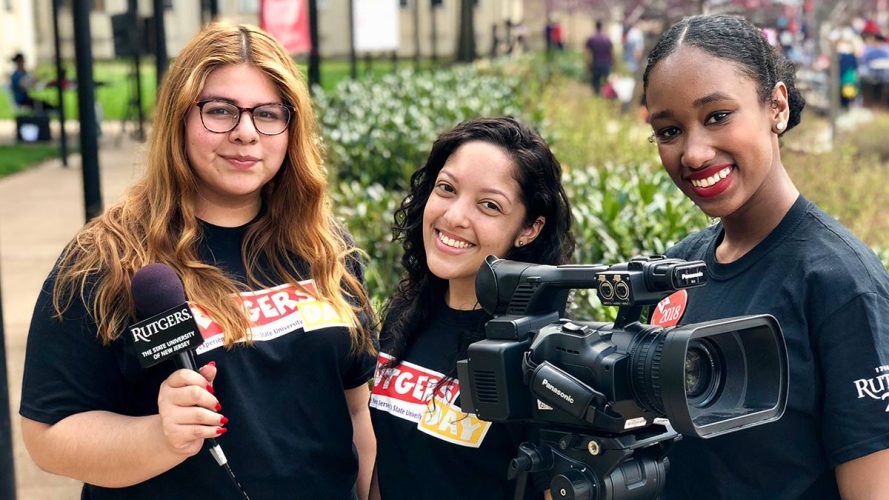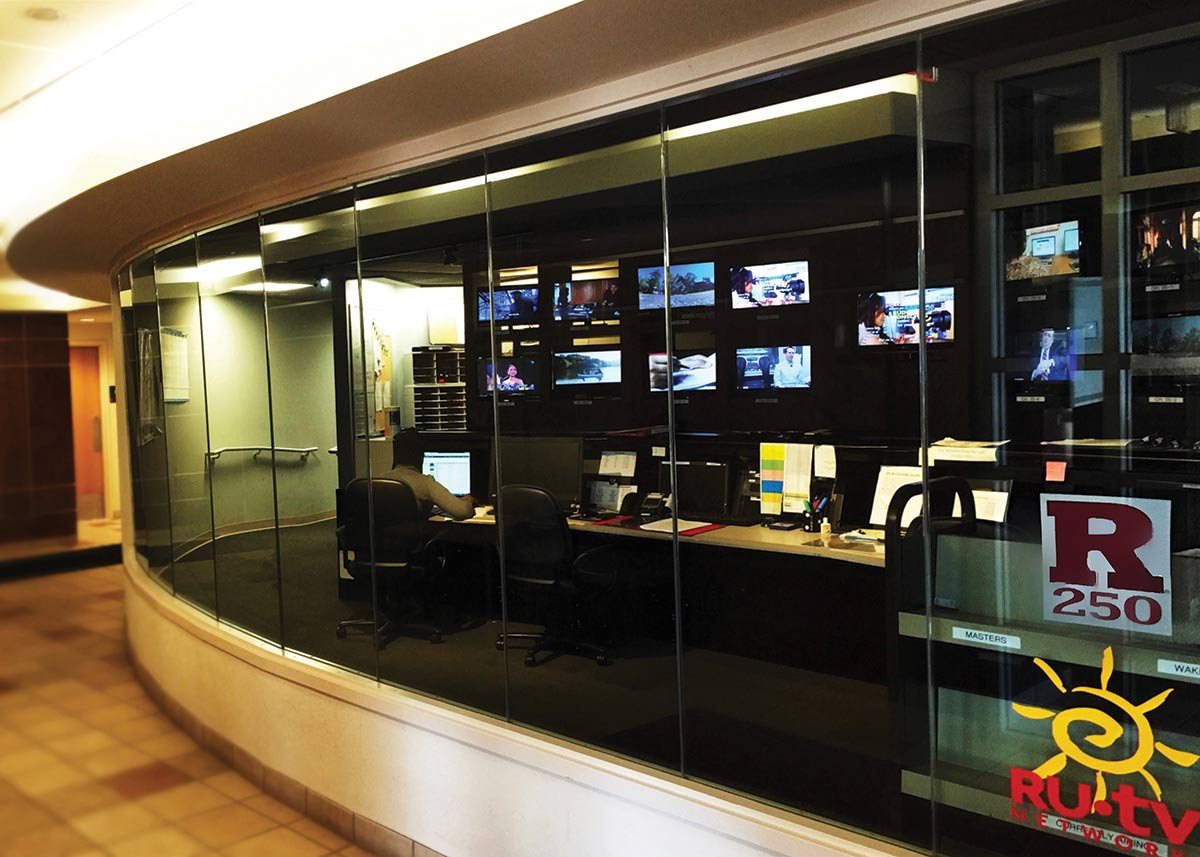- 848.932.7474
- info@rutgersalumni.org
By Christa DiMaio-Richie CCAS’99 GSC’05
When RU-tv, the University cable network, went off the air last July, it signaled the end of unique, student-produced programs offered live over the network since 1999. For decades, RU-tv was a source for Rutgers news, aired daily in dorms and administrative buildings, offering over sixty-five cable channels as well as student programming. Student programs became a primary source of communication across campus from Wake Up Rutgers to Weather Watcher and as the student programs grew, RU-tv gained recognition as a university that trained candidates for some of the top broadcast news jobs in the nation.
Student programming on the network offered students the experience of learning to produce and write news, allowing them to create original content and the art of delivering news live. Yet what made RU-tv special was that it provided Rutgers students with a studio experience that laid the foundation for future careers. In the early days of RU-tv, student programming began with news and weather reporting and then quickly expanded.

Ron Ghilino RC’80, whose three children attended Rutgers and participated in the programming of RU- tv, all lived in the Broadcast Communications Living-Learning Community. This community was student housing close to the studio and allowed students to have access to the studio seven days a week, where RU-tv programs were envisioned and created, he said.
Over the years, there were many programs, including Wake Up Rutgers, offering 30 minutes of news, sports, and weather several times a week, and RU Insider, which interviewed students on campus who were exemplary in their fields of study. Other programs included Hub City and SportsKnight. The professionalism of the student programs became well-known and recognized. RU-tv won the award of Best Student-Run Campus Television Network by the Association of Higher Education Campus Television Administrators and MTV-U.
This award reflected what made RU-tv unique—offering students the experience of creating original shows for broadcast throughout the New Brunswick campus.
For many, RU-tv brought the campus together by allowing students to create programming highlighting some of the best talents at Rutgers. Many alumni who worked in the RU-tv studio found jobs in broadcasting and credited their work at RU-tv with inspiring them to pursue their careers in broadcast news.

Jeffrey Arban, the former Chief Engineer at RU-tv who was instrumental in the production of RU-tv remembers that in addition to the production staff, “some of the engineering crew went on to some impressive careers, such as the engineer in charge of Saturday Night Live, MLB engineering, and MSNBC Primetime lead engineer.”
Over the years, members of the production crew have gone on to become news and weather reporters. Yet now, with the Network canceled, the hands-on learning opportunity in the RU-tv studio has vanished.
The closure of RU-tv was not a surprise. Despite the fact the network was a public relations tool for the University for over 20 years, there was the continuing rumor that RU-tv was nearing its final run. As the Rutgers University-New Brunswick cable network, RU-tv operated independently of any degree programs on campus. The Living-Learning Community of students managed RU-tv, and despite substantial support from students and others like Coleman, it struggled to find a permanent home. Once the pandemic arrived, RU-tv programming stopped as students left campus. The studio went dark and remained that way until the cancellation of the network.
Steve Miller, Professor of Professional Practice and Director of the Undergraduate Program in Journalism and Media Studies, believes that one day there will be another similar outlet to RU-tv for students but acknowledges that, for now, it is “hard to navigate a new reality.” He believes that students who returned after the pandemic knew little about RU-tv and moved to other outlets such as streaming.
What will replace RU-tv is still uncertain, yet its impact on Rutgers remains—the experiences not forgotten by those who discovered the joy of RU-tv and, in some cases, began promising careers in a small studio on campus.